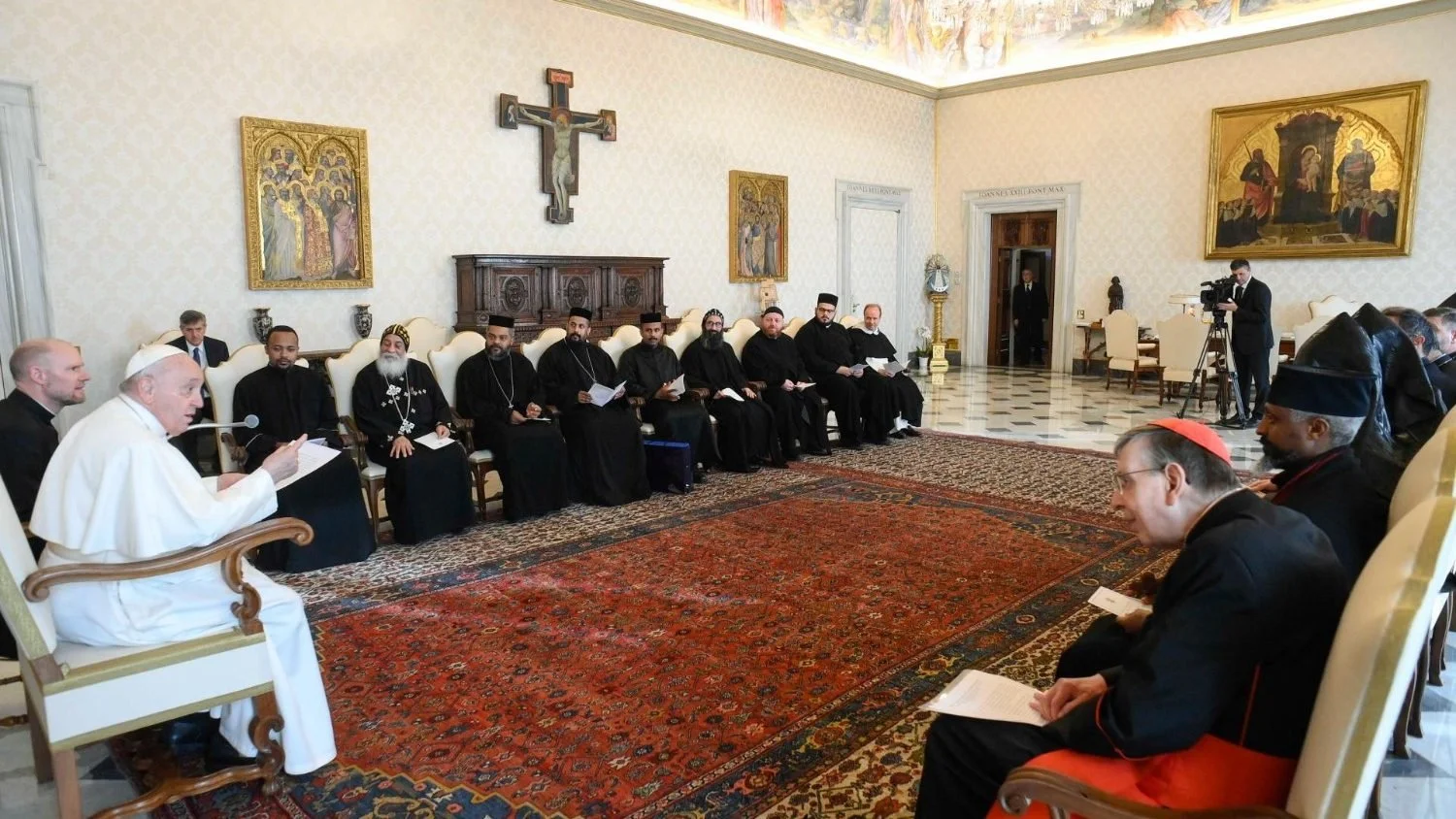His Holiness Pope Francis: Do not prevent necessary aid from reaching Syria
His Holiness Pope Francis with monks and priests from Eastern Orthodox Churches (Vatican Media)
His Holiness Pope Francis warns against impeding aid from reaching war-torn, earthquake-struck Syria, when addressing monks and priests from Eastern Orthodox Churches.
By Deborah Castellano Lubov
"I hope that everything possible will be done for the people, that there will be no reasons or sanctions to hinder the urgent and necessary aid to the population."
His Holiness Pope Francis expressed this to young priests and monks of Eastern Orthodox Churches in the Vatican on Thursday 23 February 2023.
“Some of you come from the tribulated Syria; I would like to express a particular closeness to that dear people, tried not only by the war, but also by the earthquake which, as in Turkey, has caused so many victims and terrible devastation.”
His Holiness decried the profound suffering of "so many innocent people, children, women, mothers, families."
He asked those before him to bring his greetings to their Bishops and Churches and expressed his prayer that the Blessed Mother protects them.
Two earthquakes struck southeastern Turkey early last week, devastating wide areas in the country and in neighbouring Syria. The quake toppled hundreds of buildings and killed thousands of people. The death toll has already exceeded 46,000.
Lenten journey
The Pope had begun his remarks expressing his joy to welcome them, also at the start of Lent, "the itinerary that Christians follow in preparation for the Easter of Christ, the heart of our faith."
He went on to say another "journey" comes to mind, namely the one that two disciples made together with the Risen One on Easter Day.
The journey to Emmaus, he observed, can, in a way, symbolise the ecumenical path of Christians towards full communion, prior to sharing three commonalities between the two journeys.
Pilgrimage
The first, he said, involves "pilgrimage," noting that "if Christians walk together, as the two disciples of Emmaus did, they will be accompanied by Christ, who will accompany, motivate and bring to completion their journey."
Jesus, he recalled, reaches those two disciples, distraught and disoriented, along the road, approaching them incognito.
"Certainly, sadness and withdrawal into themselves prevented their eyes from recognising Him," the Pope said, noting, "similarly, discouragement and self-referentiality prevent Christians of different denominations from seeing what unites them, from recognising the One who unites them.
"Therefore, as believers," he urged, "we must believe that the more we walk together, the more we will be mysteriously accompanied by Christ, because unity is a common pilgrimage."
Dialogue
The next element, the Pope said, is "dialogue," recalling the Evangelist says that those two disciples "conversed with each other about all that had happened."
“The dialogue of the pilgrims of Emmaus leads to a dialogue with Jesus, who becomes their exegete; on the basis of their conversations, Christ speaks to their hearts, awakens them, sets them on fire....”
Unity
The third element, the Pope said, is unity.
Jesus, he recalled, did not impose his presence, but the disciples begged Him to stay, wishing to remain together.
"One must desire unity with prayer, with all one's heart and strength, with insistence, without tiring," the Pope insisted, "because if the desire for unity is extinguished, it is not enough to walk and dialogue: everything becomes something due and formal"…
This report was originally published on the Vatican News website. Please click here to read the full text.

